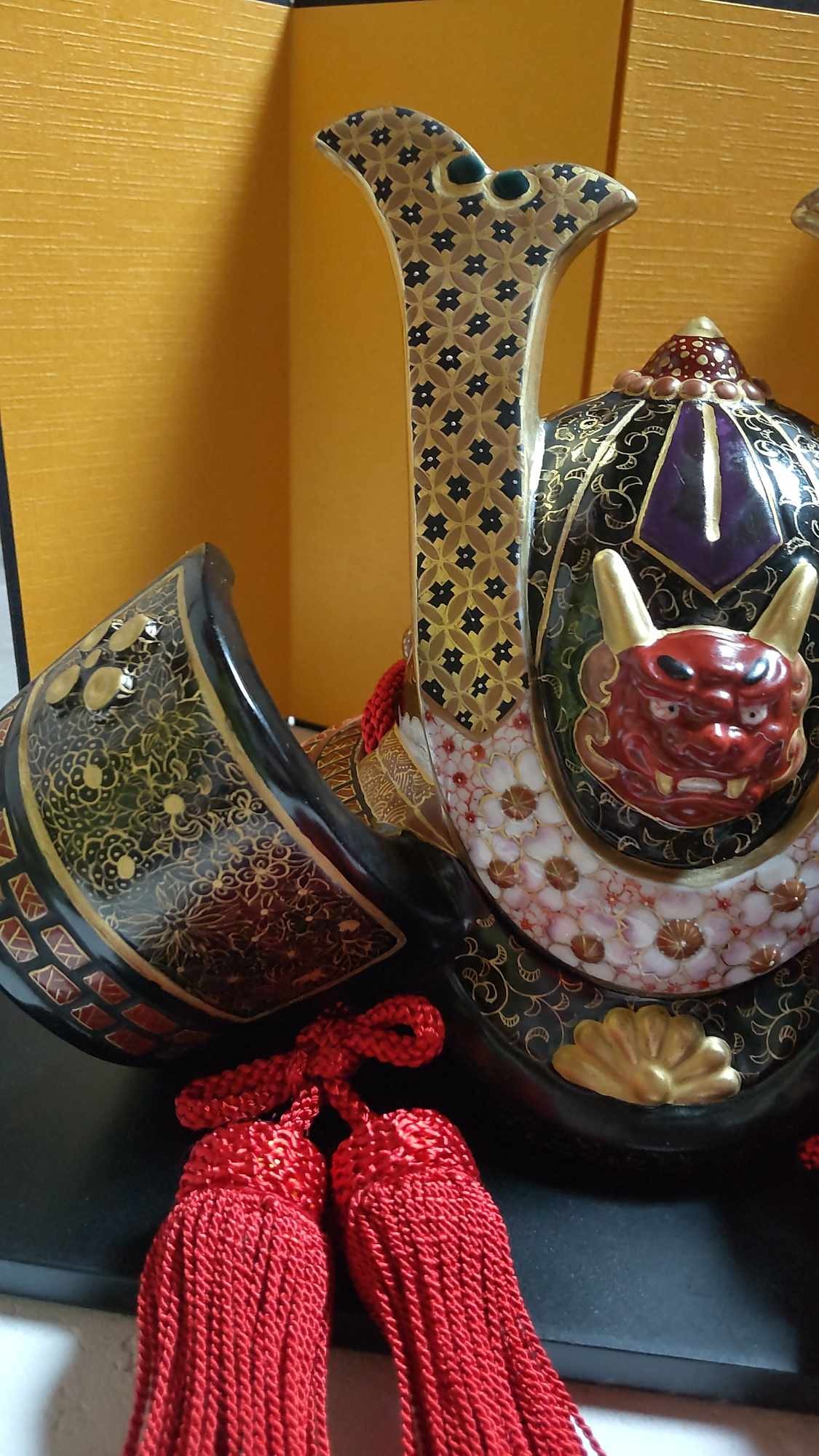
* I'm writing this entry for an art show in Italy. My last hand-painted work for the show is a samurai helmet for a boy's ceremony called "tango no sekku" in Japanese. Since I'm asking my Italian friend, Simo, to help me out, you see both English and Italian.
While we celebrate the Girl's Festival, there is also a traditional festival for boys called Tango no sekku, held every year on May 5th. When a couple has a son, it's customary for the mother's parents to prepare the helmet for their grandson. This helmet, along with sometimes full samurai armor and a sward, is displayed to wish the son happiness and good fortune. It's a deep-rooted tradition. In May colorful carp-shaped windsocks are often seen floating in air are as part of the celebration.
Since this festival is a national holiday, compared to the Girl's Festival, more families gather to celebrate it. A special sweet called Kashiwamoci, made from rice cake, red beans paste wrapped in oak leaf, is traditionally enjoyed during this time.
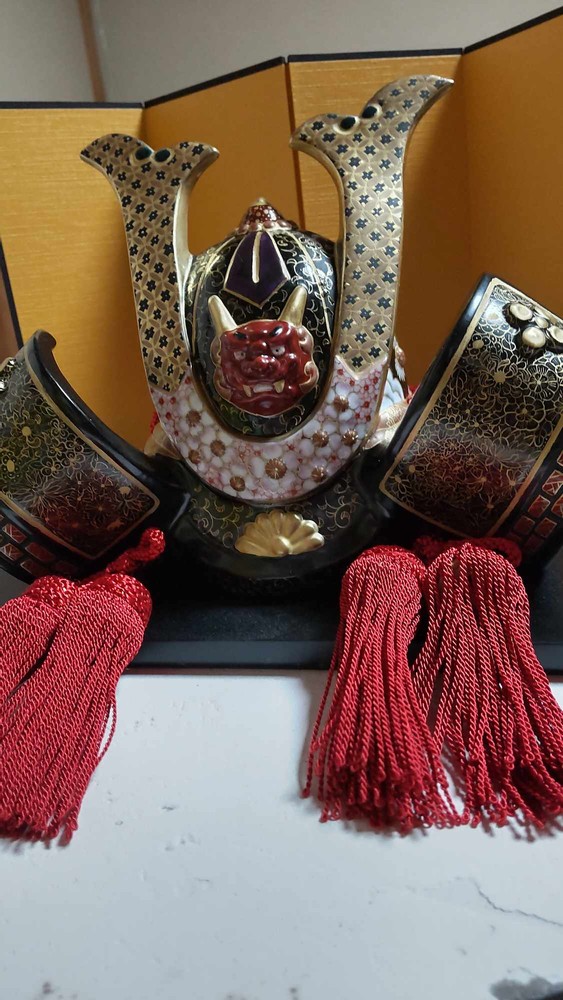
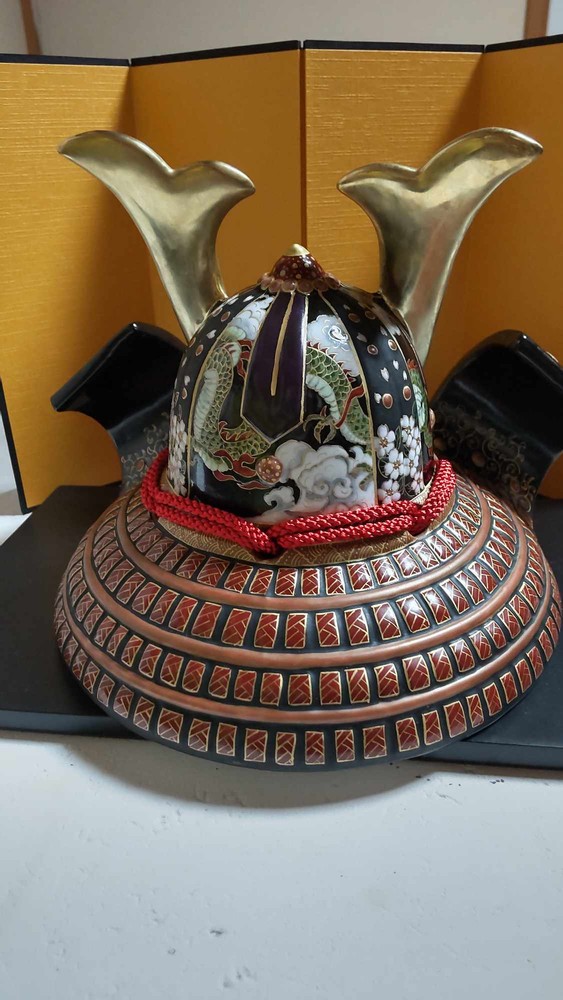
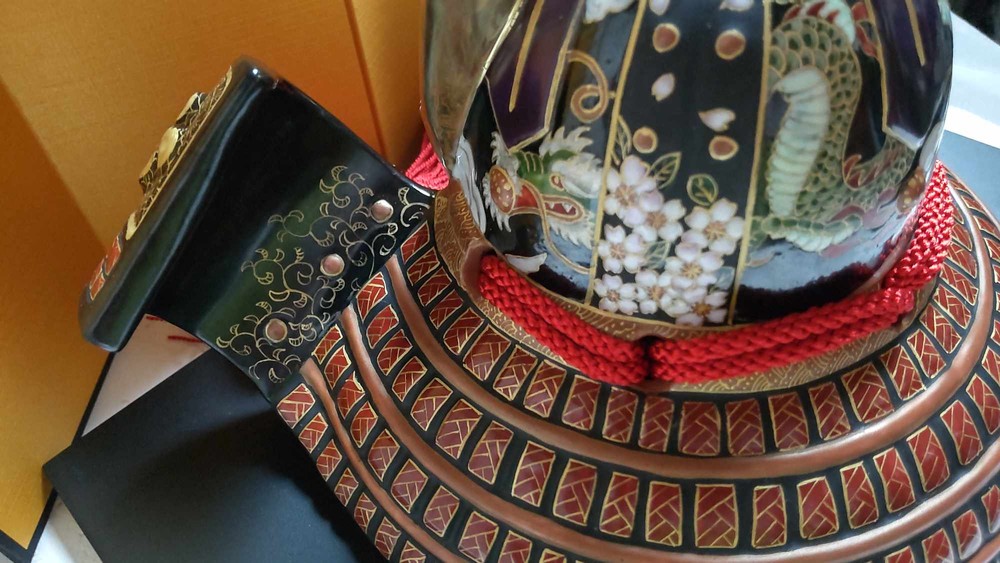
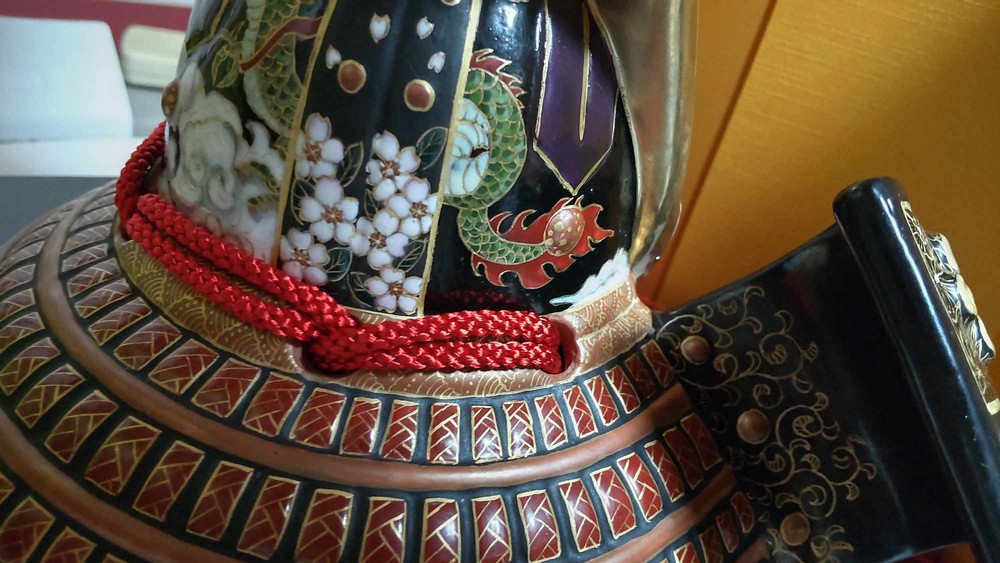
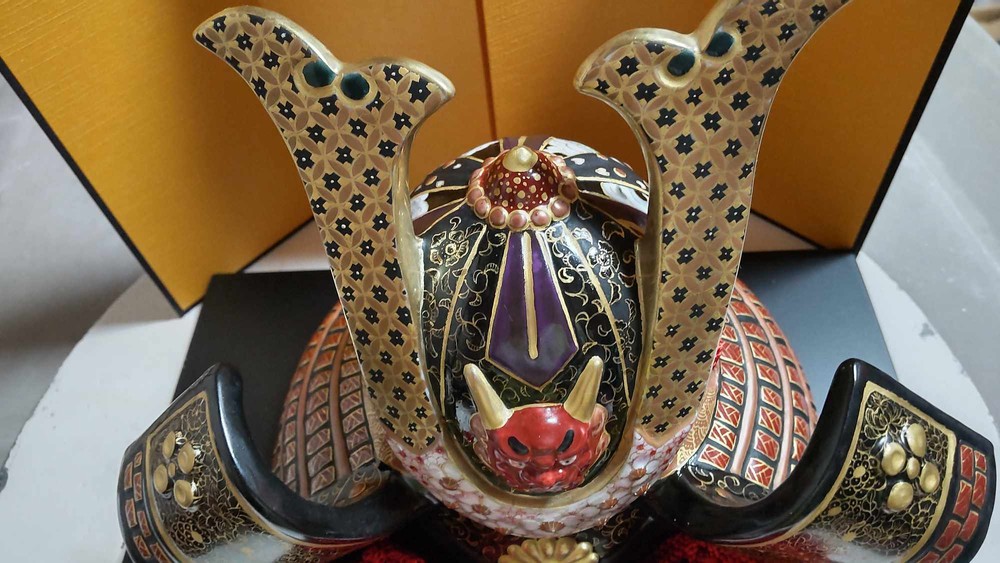
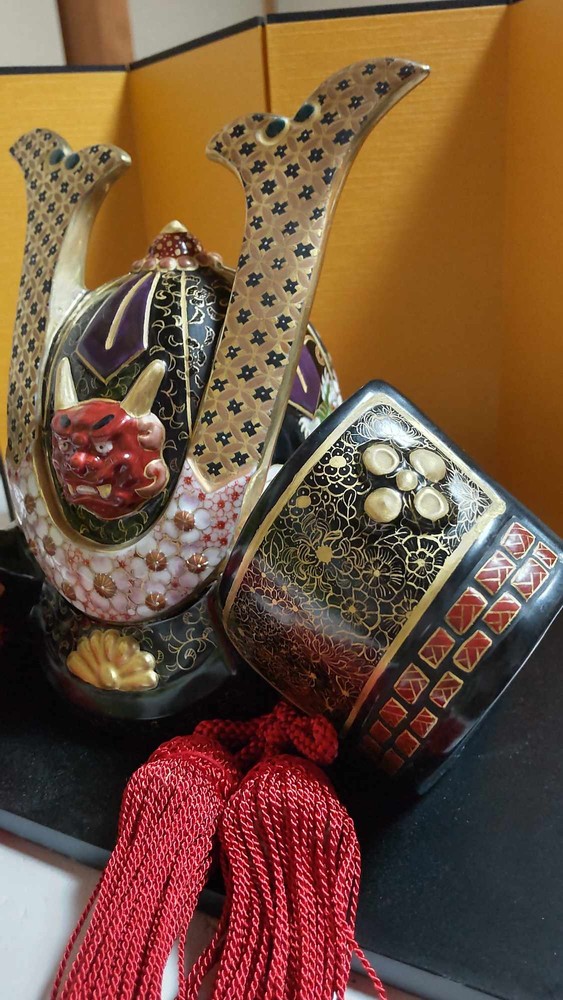
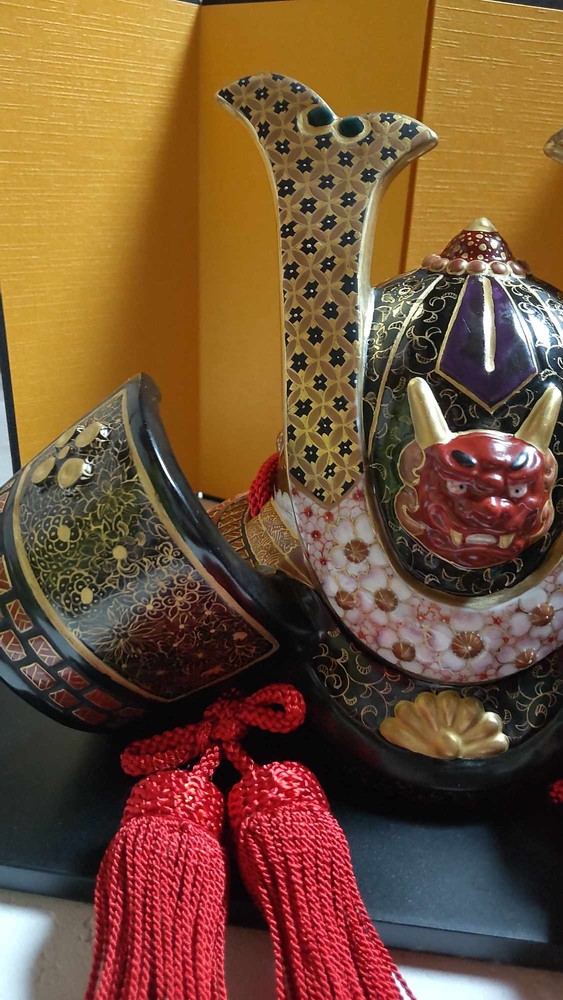
I've added the show's information. If you are in the area, I hope you'll come by.
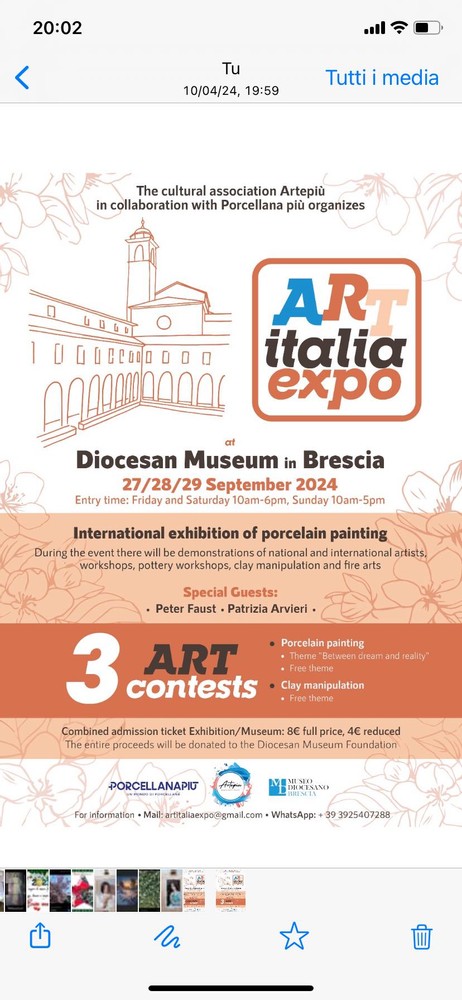
I'll be giving two presentations in English. My name is Yumiko Kanazawa, and you'll find it on the table. I haven't prepared my presentations yet, but, I'll most likely show Japanese sumi-e. Francesca will be my interpreter in Italian as usual.
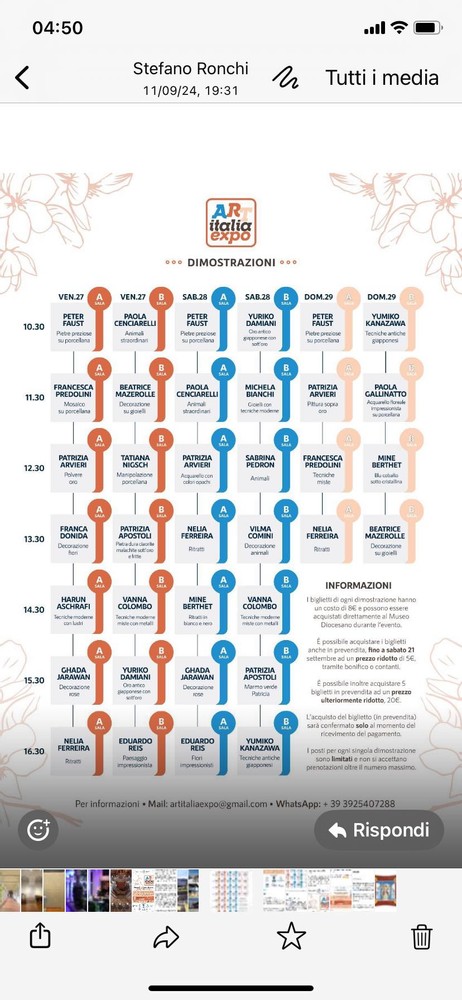
I'm leaving Japan tomorrow and fly to England. I'll hang out with my British friend and his family first, then, I head to Italy. My British friend, Italian friends and other friends from overseas are waiting for me.
Once I'm back home, I'll write about my adventures both in England and Italy here.
Ciao!
-Yumi
Mentre celebriamo la Festa delle Bambine, c'è anche un festival tradizionale per i ragazzi chiamato Tango no Sekku, che si tiene ogni anno il 5 maggio. Quando una coppia ha un figlio maschio, è consuetudine che i genitori della madre preparino un elmo per il nipote. Questo elmo, a volte accompagnato da un'armatura completa da samurai e una spada, viene esposto per augurare felicità e fortuna al figlio. È una tradizione profondamente radicata. A maggio, come parte della celebrazione, si vedono spesso aquiloni a forma di carpa colorata galleggiare nell'aria.Poiché questo festival è una festa nazionale, rispetto alla Festa delle Bambine, più famiglie si riuniscono per celebrarlo. Un dolce speciale chiamato Kashiwamochi, fatto con torta di riso e pasta di fagioli rossi avvolta in foglie di quercia, viene tradizionalmente consumato in questo periodo.
(4690)
Simo ( @Simone-) this is the last one. Thank you so much!!!
I find it surprising, @yumiyumayume, for two reasons; firstly, the mastery of decoration and, secondly, the love of tradition.
Have a good time on your trip!
Yumi, I'm sorry. I just noticed this post. I hope you'll be able to study and apply my edits.
Hope your presentation goes well.
Waiting to read your entries when you return.
Hi, everyone! Thank you so much for the comments and corrections! Today, I returned from Europe and I have some jet lag, but I'll write about about my adventures soon!
I'm looking forward to hearing about it!
Thank you @Sunflower1234 !!